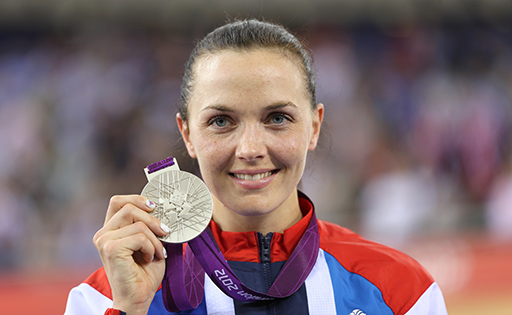3 The impact of retirement – positive or negative?
From a psychological perspective, research tends to suggest that the best time to retire is when you are ready and have chosen to. This choice gives the athlete a sense of control over their career and, combined with a clear retirement plan, can result in a smoother transition into their new life after sport (Park et al., 2012). Indeed, many athletes approach the whole experience in a positive way as illustrated in the example of cyclist Victoria Pendleton.
Box 1 Victoria Pendleton, multiple World and Olympic cycling champion

Victoria Pendleton made the following comments after her last ever cycling race at the 2012 Olympics in London:
I’m just so glad that it’s all done and I can move on.
I’ve had enough of the pressure of trying to maintain the top level in the sport for so many years.
Victoria retired at the top of her game having achieved all of her goals and viewed her retirement in a positive light, relishing the prospect of new challenges and feeling relief to be away from the intense pressure of cycling.
Victoria’s experience is in stark contrast to that of middle-distance runner Kelly Holmes who, like Victoria, also chose to retire from sport. You will hear about Kelly’s experience in the next activity.
Activity 3 Feeling lost: the dark side of retirement from sport
Listen to the audio clip of Dame Kelly Holmes below. As you listen, note down what she says was one of the hardest things about retirement for her.
Transcript: Audio 1
Discussion
Although Kelly retired having had an incredibly successful career, she shares how lost she felt when she retired and how she even had suicidal thoughts. Kelly also alludes to the loss of her athletic identity as she went from being an Olympic athlete to a retired athlete. She notes how this was a hard period of adjustment for her but how it is even harder for athletes who have not had her success but who suddenly find themselves forced to retire.
While both Victoria and Kelly chose to retire from sport, their experiences were very different. Kelly’s experience reinforces the point made by Barry in Activity 1 that even when an athlete chooses to retire they can still suffer several negative emotional consequences.
But what is the impact of retirement on someone who feels their career is cut short due, for example, to a loss of form, deselection or injury (such as in the case of youth footballer turned actor Matt Smith who you heard from in Session 2)? Athletes in this position can suddenly find themselves in a situation out of their control and this, as you considered in Sessions 2 and 3, can have a significant impact on the quality of their experience (Kuettel et al., 2018). Forced transitions tend to be more problematic and can be characterised by periods of psychological distress and feelings including grief, sadness and anger (e.g. Demetrio et al., 2020). But how can these feelings be managed?
